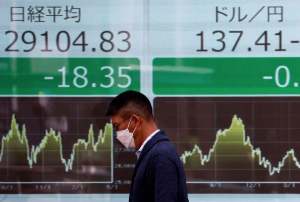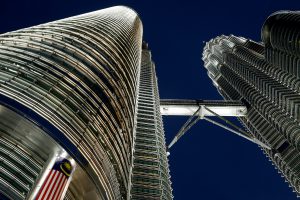(ATF) Insurance does not seem an obvious component of cutting carbon emissions, in comparison with tax breaks, government subsidies, bans, and corporate divestments of carbon assets. But insurers – along with the world’s biggest fund managers – say they are playing an important but largely hidden role in promoting a green Asia-Pacific, a region with some of the biggest emitters in the world.
More Asia-Pacific countries are setting deadlines for carbon neutral. In October, Japan’s new Prime Minister Yoshihide Suga said the country would become carbon neutral by 2050, matching China’s similar pledge to achieve carbon neutrality by 2060. South Korea soon followed suit.
How realistic these pledges are remain to be seen, especially in pandemic-racked global and regional economies. Analysts say China’s target is doable. “Electrification remains the main strategy to phase out fossil fuels, said Natasha Kaneva, global commodities analyst at JP Morgan in New York, who estimated that simply converting China’s light vehicle fleet to electricity would save 3 million barrels of oil per day by 2035.
The insurance industry has also swung its weight behind the green economy. “Insurers are increasingly helping the global business community cut carbon emissions as more countries set deadlines by when they aim to achieve carbon neutrality,” said Andrew Slevin, chief executive of UK valuation experts John Foord.
In February, reinsurer Swiss Re said it would stop providing insurance and reinsurance to, and investing in, the most carbon-intensive oil and gas companies, saying it is committed to achieving net-zero emissions on its operations by 2030. “By keeping global warming to well below 2?C from pre-industrial levels, the target is to reduce greenhouse gas emissions to net-zero by 2050 worldwide,” said Martin Weymann, head of sustainability at Swiss Re. “Achieving this is a daunting prospect but, in our view, both a mission possible and necessary.”
The Geneva Association, an industry think-tank, believes the industry needs to be more aggressive about climate change risk. A recent report said insurers should knock down barriers to climate adaptation and mitigation, see climate change as a core business issue and support transitions to low-carbon economies through risk management, underwriting and investment.
Some Asian companies agree. This month, Samsung Group’s financial units pledged to stop all investment in new coal projects, including via bonds or insurance underwriting. Samsung Life Insurance and Samsung Fire & Marine Insurance said they hadn’t directly financed new coal projects since June 2018, but would from November no longer invest in corporate bonds aimed at building coal-fired power plants or underwrite insurance policies for such projects.
More than 65 insurers worldwide have divested from coal, but there are holdouts, including Asia-Pacific underwriters. Insurance giant Tokio Marine has been criticised by European asset managers over its involvement in the multibillion-dollar Vung Ang 2 coal-fired power project in northern Vietnam.
Aon, the world’s largest insurer, is brokering insurance for BMD, the railway contractor of the India-based Adani Group’s giant Carmichael coal mine in Australia, while environmental activists said this week that AIA is undermining its pledge to address climate change by investing billions of dollars in coal companies in Malaysia and other countries.
“Although AIA claims to support the Paris Agreement it has placed no restrictions on its $200 billion portfolio,” said Peter Bosshard, international coordinator of the Insure Our Future, a green lobby group.
Green underwriting
However, there is no doubt that there is a sea change occurring in the industry. “Carbon assets are entering a harder market as fewer insurers and reinsurers are willing to underwrite risk for non-sustainable energy assets, driving up prices and creating incentives to move away from fossil fuels,” said Slevin. “There is a growing demand for green underwriting.”
China has been quietly pushing green insurance for years. The government’s Guidance on Establishing a Green Finance System, issued in 2016, emphasised the development of green insurance, including a compulsory environmental pollution liability insurance system. However, legislation is piecemeal and progress has been slow, said Simon Lee, equity analyst at Morgan Stanley Asia in Hong Kong. “The next challenge for the government could be to improve regulations.”
For insurers, vast sums are at stake. Samsung Life Insurance and Samsung Fire & Marine Insurance said they had financed $14bn in coal projects over the past decade and have a combined $2.2bn in outstanding investments in coal projects.
But there are practical benefits from green insurance, said Slevin, who argued that insurers have been losing money on fossil fuels for years, particularly in the downstream oil and gas sector, often paying out more than they have collected in premiums. “Significant upstream losses in the Gulf of Mexico related to hurricanes and downstream major refinery losses over recent years have exacerbated the issue,” he said.
Over the past 12 or 18 months, premiums for property damage policies within the downstream oil and gas sector have risen 5-10% broadly, but for many operators by 30-40%, according to Slevin. “In some cases, companies have faced insurance premium increases of hundreds of percent or are struggling to get assets insured at all.”
Slevin said the Covid-19 pandemic has only accelerated these trends, with more decommissioning of carbon-intensive assets in the power and oil and gas sectors likely as a result. Overall, he added, this is good for renewables and provides an incentive for energy companies – and their insurers – to develop more green assets in the future.
























